
The History of Christianity – From the Disciples to the Dawn of the Reformation.
Description
Filesize : 15.47 GB
Christianity is the largest and most global religious tradition in history. For nearly 2,000 years, the Christian faith has remained at or near the center of Western moral debate and conceptions of human identity, just action, and ultimate meaning. It has both shaped history and responded to history, showing an extraordinary adaptability within greatly differing cultures. Its practice and influence appears in every land and every language, and one-third of humanity now affiliates in some way with Christianity.
How did this happen? How did a persecuted sect in 1st-century Palestine rise to command such a massive influence on human culture, imagination, and spirit? How did Christianity weather the first critical stages of its historical development and attain its fundamental and enduring cultural role?
Discovering the answers to these questions allows you to
- understand one of the most significant and integral currents of history, and to correct misconceptions about Christianity’s past;
- gain deep insight into the origins of Western societies, and to understand the relation of faith to politics, economics, and culture;
- grasp how Christian institutions, theology, and liturgy originated and developed;
- better comprehend the cultural present, where 7 out of 10 Americans hold Christian beliefs; and
- deepen your appreciation of the majestic sweep of history that Christianity’s rise represents.
Speaking incisively to all of this and more, The History of Christianity: From the Disciples to the Dawn of the Reformationtells the phenomenal story of Christianity’s first 1,500 years, in all its remarkable diversity and complex dimension.
In the company of popular Great Courses Professor Luke Timothy Johnson of Emory University, you follow the dramatic trajectory of Christianity from its beginnings as a “cult of Jesus” to its rise as a fervent religious movement; from its emergence as an unstoppable force within the Roman Empire to its critical role as an imperial religion; from its remarkable growth, amid divisive disputes and rivalries, to the ultimate schism between Eastern Orthodoxy and Western Catholicism; and from its spread throughout the Western world to its flowering as a culture that shaped Europe for 800 years.
In 36 enthralling lectures, you meet the towering figures of Christian history, such as Paul of Tarsus, Augustine, the emperor Constantine, and Pope Gregory VII, as well as many other pivotal players—kings, popes, saints, monastic figures, scholars, and mystics. And you delve deeply into the rituals, doctrinal issues, and fascinating theological controversies that defined the faith.
The History of Christianity: From the Disciples to the Dawn of the Reformation brings to life a truly epic story, giving you a multilayered knowledge of Christianity’s origins, rise, and civilization-shaping presence in our world.
The Forging of a Global Faith
Across the arc of the story, you reckon with the historical and theological milestones that formed Christianity, including these seminal moments:
- The Jesus movement: Investigate the passionate claims of the first believers to an experience of ultimate, transforming power—and the means by which the movement exploded in the decades following Jesus’s death.
- Critical challenges to the faith: Witness the early Christians’ implacable commitment to the new religion, creating strong institutional and ideological structures even as they answered persecution through martyrdom and “apologetic” literature.
- Christianity and empire: Learn how the faith, once it was instated as the official religion by Rome, expanded geographically under imperial authority; how Christian culture developed through architecture, art, and ceremony; and how the religion became fatefully enmeshed in politics in the interface of patriarchs, popes, and emperors from Rome to Constantinople.
- Great controversies of theology: Dig deeply into the Trinitarian and Christological controversies that divided Christians between the 4th and 7th centuries, centering on differing conceptions of the nature of Christ and fiercely contested in the famous Councils of Nicaea, Ephesus, and Chalcedon.
Get immediately download The History of Christianity – From the Disciples to the Dawn of the Reformation.
- The rupture between East and West: Grapple with the overlapping factors of cultural distance, misunderstandings, political rivalries, and doctrinal disputes that led to the final split between Orthodoxy and Catholicism in the 11th century.
- The flowering of European Christendom: Experience the extraordinary richness of Christian culture in the Middle Ages, including the complex institution of monasticism, the glory of medieval cathedrals, the birth of universities, and the commanding presence of the papacy.
The Rich Diversity of Christian Experience
In charting the remarkable rise of Christianity, you uncover the specific social and cultural realities that drove the development of the faith.
Early in the course, you locate the birth of the religion—and the movement’s powerful appeal—not in the life of Jesus itself, but in the first Christians’ life-altering experience of the Resurrection. You see how early Christianity was not “one thing,” grasping its startling variety of expression through figures such as the preacher Thecla, who dressed as a man and baptized herself, and in the extreme ascetic practices and ideology of the Marcionist movement.
You investigate the origins and deep influence of monasticism, its specific practices and ways of life, and you see how monasticism became the dominant formal expression of medieval Catholicism.
You travel the geographic expanse of the Christian world, from Persia and Egypt to Byzantium, Rome, and the British Isles, and you glimpse the lives of ordinary Christians in all eras, from the first, embattled Christian communities in Palestine to the sophisticated Catholic culture of the Middle Ages.
Faith, Politics, and Civilization
In the course’s middle section, the formerly countercultural faith becomes the pillar of the world’s greatest military and political power. Here you grapple with the tensions and challenges of this new role, as the Roman Empire “converts” and pagan sacrifice is declared high treason.
You track the rivalries of patriarchal centers, as the cities of Antioch, Alexandria, and Constantinople vie for supremacy within the imperial faith. In Byzantium, you witness the increasing intermingling of faith and politics, as the bishop Ambrose of Milan demands public repentance of the brutal emperor Theodosius I, and the emperor Justinian intervenes between factions contesting the true nature of Christ.
In the “Carolingian Renaissance” of 9th-century Europe, you see how the emperor Charlemagne responded to papal patronage by sponsoring ecclesiastical reforms and supporting the Latin Mass. And you observe how the papacy—aided by royalty and monk-missionaries—became the central force in bringing the Christian message to all of Europe.
Extraordinary Treasures of Christian Culture
Throughout the course you observe the profoundly literary quality of this faith, taking note of the diverse Christian writings in Syriac, Coptic, and Armenian, the formulation of Christian orthodoxy in the works of Tertullian and Irenaeus,the philosophical treatises of Clement and Origen, and the scholastic theology of Abelard and Thomas Aquinas.
You study the long and colorful development of Christian liturgy in the traditions of ritual, architecture, and public works. You taste the splendor and sensuality of Eastern Orthodox worship, with its ornate vestments, incense, and processions. You learn how the medieval cathedral embodied allegorical symbolism in its form, with its vaulted nave (from navis, “ship”) shaped as an inverted “ship of salvation.” And you observe the role of Christian art in the long conflict in Byzantium over the veneration of religious icons.
Finally, you witness the flourishing of contemplative mysticism in the dark era of the Inquisition, and you uncover the misuses of doctrine and forms of corruption that roused the first courageous reformers, boldly anticipating the Protestant Reformation of the 16th century.
A Story for the Ages, Masterfully Told
In recounting the astonishing narrative of Christianity’s unfolding, Professor Johnson draws on his own background as a passionate participant in this tradition, both as a former Benedictine monk and as a world-class scholar. In his powerful and evocative words, this grand tapestry of history comes vibrantly alive as he takes you to the defining moments of Christianity’s past.
In The History of Christianity: From the Disciples to the Dawn of the Reformation, you’ll look deeply into the nature and role of faith, the ethos of our civilization, and the core conceptions of identity and ethics that underlie the Western worldview. This is history in the most vivid and meaningful sense of the word: an inquiry into the past that opens a compelling awareness of our present—of our living origins, our ultimate horizons, our deeper selves.


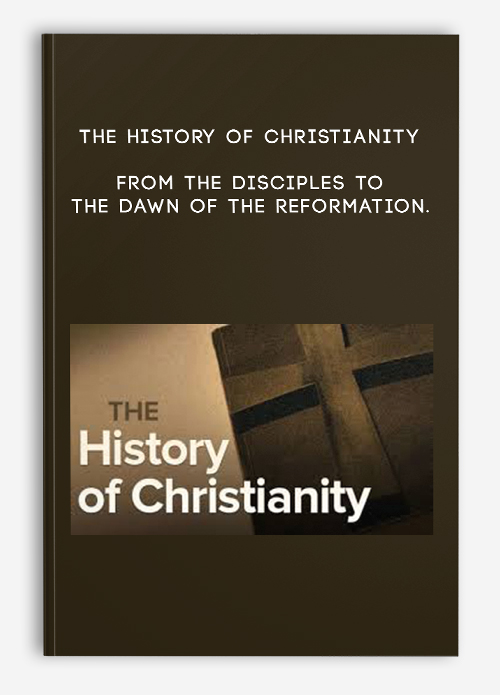
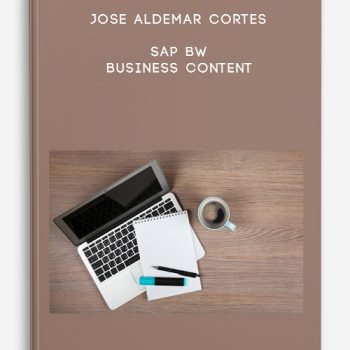
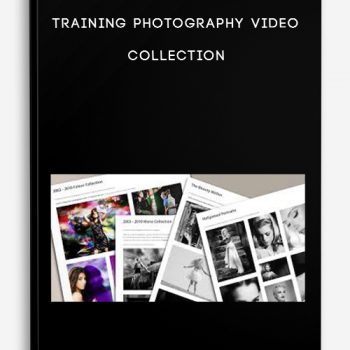
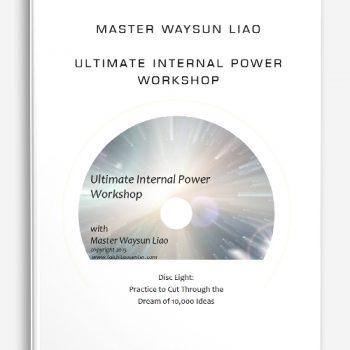
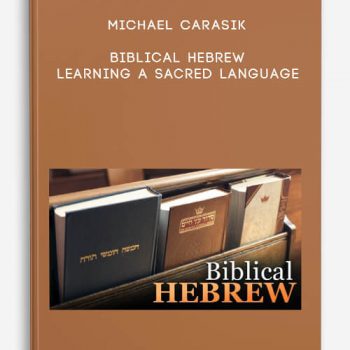
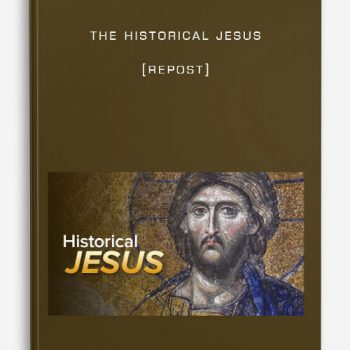

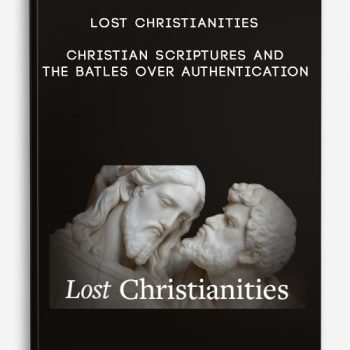
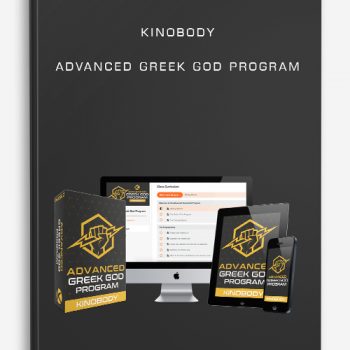

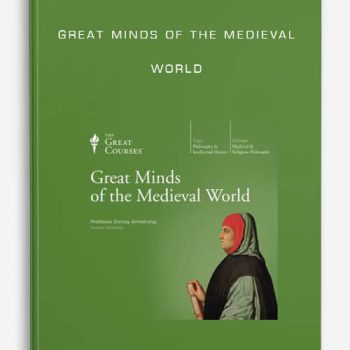
tristian –
This is Digital Download service, the course is available at Coursecui.com and Email download delivery.